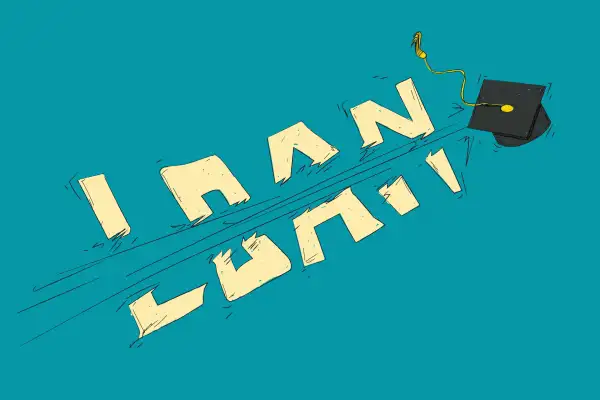The Duty of Credit Rating in Securing Small Service Loans for Business Owners
In the competitive landscape of entrepreneurship, protecting a small company loan frequently rests on the pivotal variable of credit report. These ratings act as a numeric representation of an entrepreneur's credit reliability, affecting lending institutions' decisions and the terms provided. A higher credit rating can open up doors to beneficial lending problems, while a reduced score may present significant barriers. What specifically affects these scores, and just how can entrepreneurs purposefully enhance them to boost their possibilities of protecting vital financing? The solution to these inquiries hold the secret to opening possible development possibilities for small companies.
Comprehending Credit Rating
Credit rating are vital mathematical depictions of a person's creditworthiness, functioning as a pivotal element in monetary decision-making for lending institutions. These ratings are obtained from an extensive evaluation of a person's credit report, including facets such as repayment history, credit score application, size of credit rating, brand-new charge account, and kinds of credit scores utilized. Usually varying from 300 to 850, greater scores represent reduced danger to lenders, while lower scores suggest greater risk.
The computation of credit report is performed by credit score bureaus making use of exclusive algorithms, with one of the most widely recognized designs being FICO and VantageScore. Each version may weigh variables somewhat in different ways, however they all objective to supply a consistent action of credit rating risk. A strong credit scores rating reflects the person's reliability in handling financial debt, making timely settlements, and maintaining a healthy and balanced balance in between credit rating made use of and readily available credit scores.
It is crucial for individuals and service owners to comprehend their credit rating, as these figures can have significant ramifications beyond personal finance. Consistently monitoring one's credit rating record, dealing with errors, and embracing sound financial behaviors can dramatically improve credit report, thereby boosting the individual's overall economic account and credit reliability.
Relevance for Lending Approval
Recognizing one's credit history is fundamental, as it plays a considerable role in the procedure of finance authorization for small companies. Lenders use credit scores as a main metric to assess the credit reliability of applicants. A solid credit rating indicates a history of liable economic actions, recommending to loan providers that the applicant is most likely to pay off the car loan on schedule. A high credit history rating can substantially enhance an entrepreneur's opportunities of securing a funding with beneficial terms, consisting of reduced interest rates and even more flexible repayment choices.
As little businesses usually need timely accessibility to funds for growth and sustainability, keeping a robust credit scores rating ends up being important. Hence, understanding and taking care of one's credit history rating is an essential component of preparing for loan applications and achieving organization success.
Factors Impacting Ratings
Several variables add to the decision of a credit report, each playing a pivotal role in forming a person's credit rating profile. Among these, settlement background sticks out as the most influential, reflecting the timeliness and consistency of debt repayments. Lenders closely inspect this aspect to evaluate economic integrity. Similarly, the amounts owed, or credit rating utilization, significantly impact ratings. A high ratio of used debt to readily available credit score can suggest economic overextension, detrimentally affecting creditworthiness.
Size of credit report also aspects right into credit rating calculations, with a longer credit rating normally seen more favorably. This statistics gives insight into the individual's long-lasting monetary actions, providing lending institutions a wider viewpoint on their credit rating management abilities. Additionally, the sorts of debt in usage are considered, as a mix of debt accounts, such as rotating bank card and installment car loans, can show the capability to take care of different financial commitments.
Lastly, recent debt queries might affect scores (pre approval student loans). Frequent applications for new credit report can indicate financial distress, thus negatively impacting the rating. Each of these elements is critical in the thorough evaluation of a credit history, influencing an entrepreneur's capacity to protect a bank loan
Improving Your Credit History
Increasing one's credit report belongs to supporting a garden; mindful attention to vital areas can yield substantial enhancements. To start, guaranteeing timely repayments on all credit history accounts is essential. Payment background comprises a significant section of a credit report score; therefore, setting up automated payments or tips can aid keep consistency. Furthermore, lowering debt degrees is necessary. High debt use ratios, or the quantity of credit rating used about the credit history limitation, can adversely affect ratings. Goal to keep utilization below 30% of complete readily available credit.

Lastly, maintaining older credit report accounts can positively affect the typical age of credit history, which is another consider racking up designs. While new credit rating questions must be lessened to stay clear of short-lived score dips, responsible debt monitoring over time will naturally lead to score improvement, thus improving qualification for beneficial small business lending terms.
Alternate Funding Choices
Business owners with less-than-ideal credit score ratings might locate these alternatives not just extra easily accessible yet likewise customized to their special organization demands. These systems generally provide much faster approval procedures and even more adaptable terms than traditional financial institutions, often taking into consideration factors past debt ratings, such as service performance and cash money circulation.
Additionally, microloans, often offered by nonprofit companies, cater to small businesses and startups. They supply smaller sized car loan amounts with lower rate of interest prices, making them ideal for business owners that need limited funding.
Invoice financing and merchant cash money breakthroughs are additionally worth thinking about. The former entails selling outstanding invoices to a lending institution at a discount rate, while the latter gives a breakthrough on future sales. Both choices can enhance cash money flow without the strict credit score needs of standard lendings.
Conclusion

These scores are obtained from a comprehensive evaluation of a person's credit report background, including aspects such as repayment history, credit scores application, size of debt history, brand-new debt accounts, and types of credit history utilized (pre approval student loans). A strong credit scores score reflects the person's reliability in taking care of click this link debt, making prompt settlements, and maintaining a healthy balance between credit rating used and offered credit
